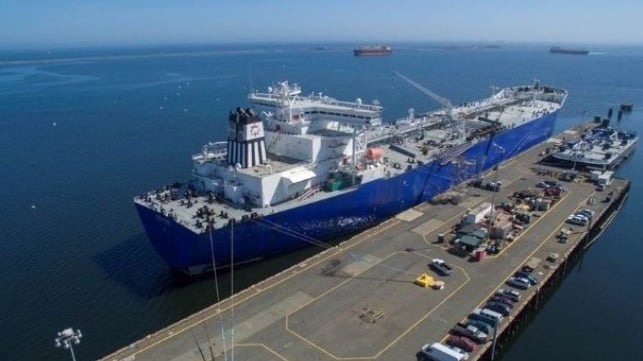Port Associations Appeal for $3.5 Billion in Aid from US Congress

Despite the rebound in volumes experienced in recent months, many ports around the United States continue to struggle with increased operating costs and revenue shortfalls because of the pandemic. The American Association of Port Authorities joined by 20 regional port authorities and unions, sent a letter to the leaders of the US House and Senate appealing for emergency relief funding for the nation’s maritime transportation system while individual ports around the country are filing for federal grants.
“We urge you to provide $3.5 billion for the maritime transportation sector,” the port authorities and other organizations wrote in their letter to the US Congress. They asked that the funding be included in the National Defense Authorization Act if that is to proceed before further COVID-19 relief legislation. Through the Maritime Transportation System Emergency Relief Program, they ask that authorization be given to the Maritime Administration to provide grants to help defray business-critical expenses that have been incurred due to the ongoing COVID-19 pandemic.
Despite the significant hardships ports around the country have experienced during the pandemic, the letter highlights that “to date, no dedicated funding has been provided in any of the COVID-19 legislation to assist the maritime transportation system, despite emergency relief being provided to other modes of transportation.”
In making their case for the assistance, the letter highlights the contributions of the maritime transportation system to the health of the US economy and enabling commerce by keeping vital goods moving in general and specifically in 2020 as the pandemic swept across the country. Their data says that 65,000 Americans were directly employed in jobs generated through the movement of marine cargo and a total of 30.8 million jobs were supported by cargo moving through America’s deep-draft ports.
The letter reports that the total waterborne trade volume is down 6.3 percent in 2020. They estimate the value of the trade is down nearly 14 percent totaling $200 billion. Despite this, expenses have increased due to COVID-19 protocols and precautions. They also highlight that ports in rural areas have propped up local economies even assisting small businesses at the port’s own expense.
Local ports around the United States have been looking for creative means to fund their vital projects and offset costs. For example, during the summer Eastport, Maine rented an unused pier to one of the idle cruise ships. Local media reports estimated that the cruise line was paying as much as $50,000 a month for the dock with the port authority using the proceeds to repay a debt it incurred a few years ago to repair its collapsed breakwater.

that matters most
Get the latest maritime news delivered to your inbox daily.
Ports along Washington State’s peninsular coast are seeking federal grants to fund vital projects according to an article in the Peninsula Daily News. Port Angeles’ engineering director told the newspaper about a $7.3 million grant application the port has before the Economic Development Administration. The funds would be used for infrastructure projects, including expanding the boat manufacturing and repair businesses in the port. The nearby port of Port Townsend is also seeking $9.3 million from the EDA’s Disaster Recovery Program to replace a breakwater.
While the local ports are optimistic on their grant applications, the letter to Congress from the national organizations warns that ports might be forced to reduce operations without Federal assistance. They concluded their appeal to Congress by saying it is essential that the U.S. maritime industry maintain a state of readiness and sustain its critical responsibility in the supply chains for the citizens of the United States.
